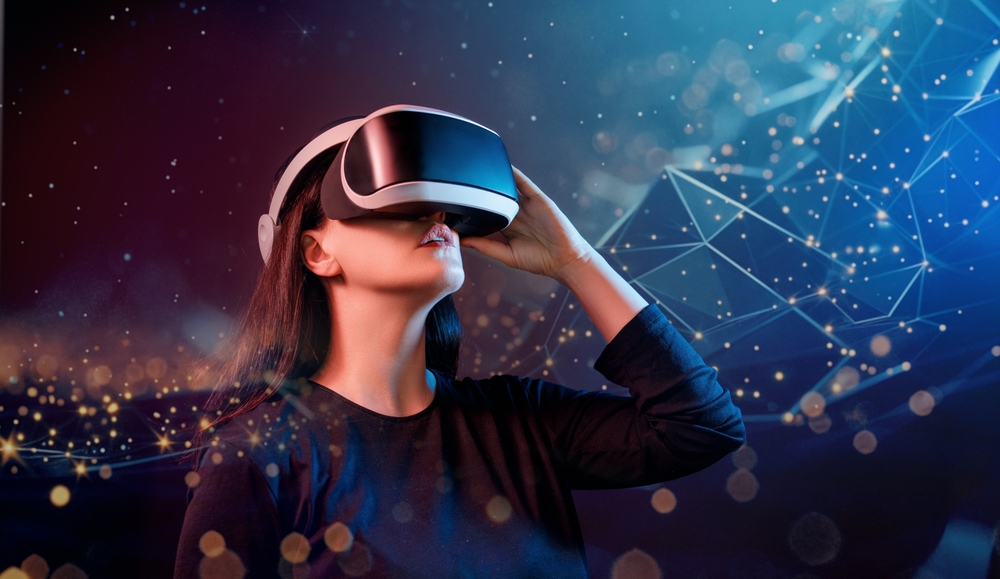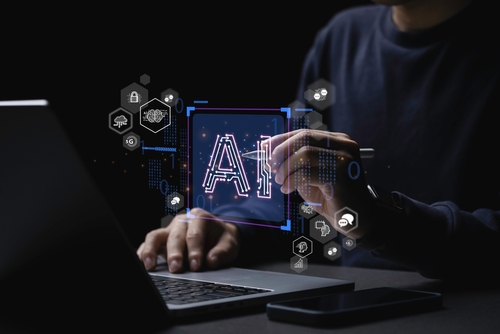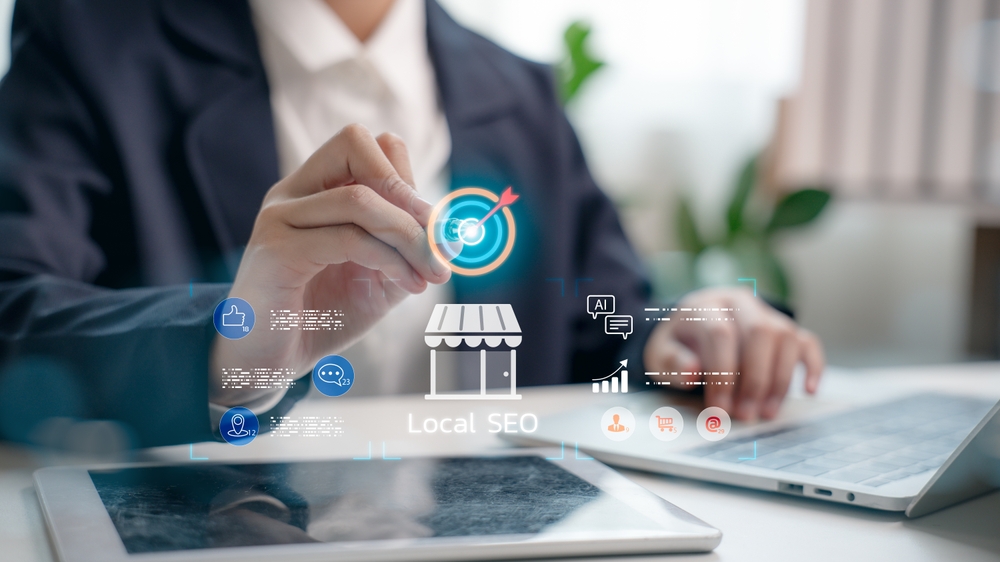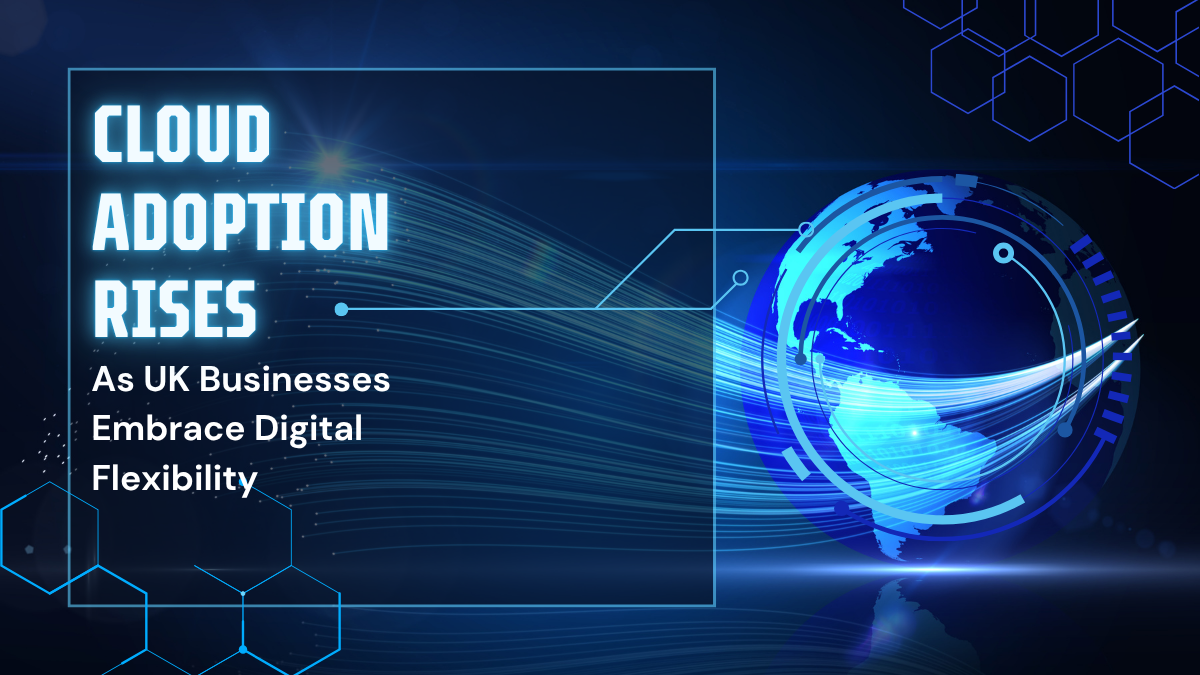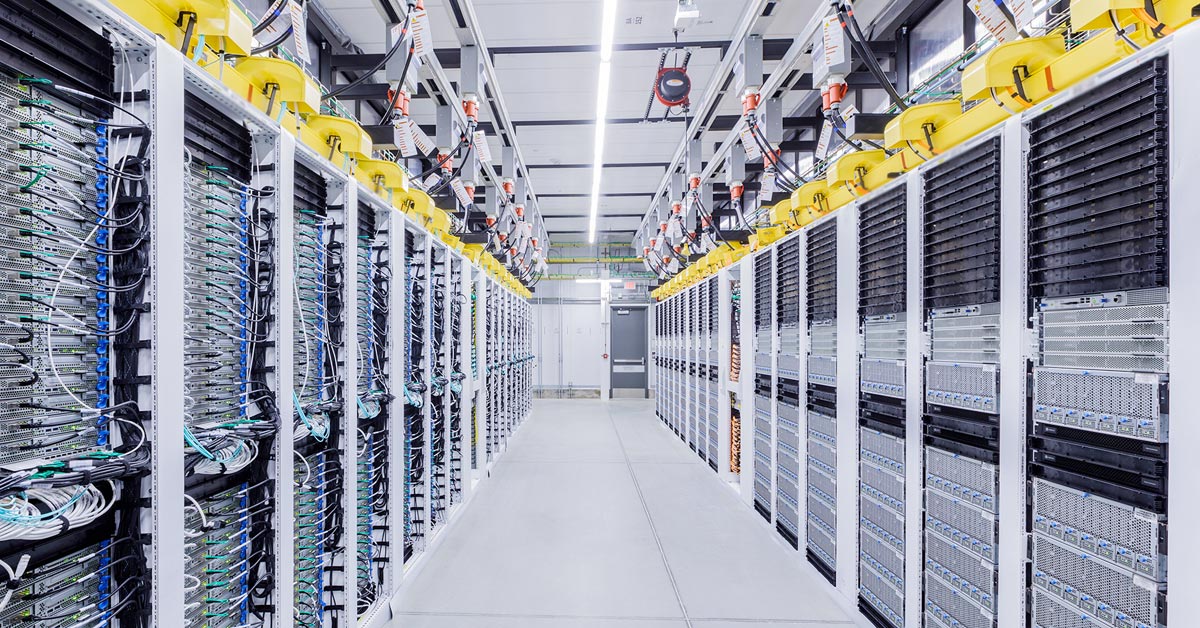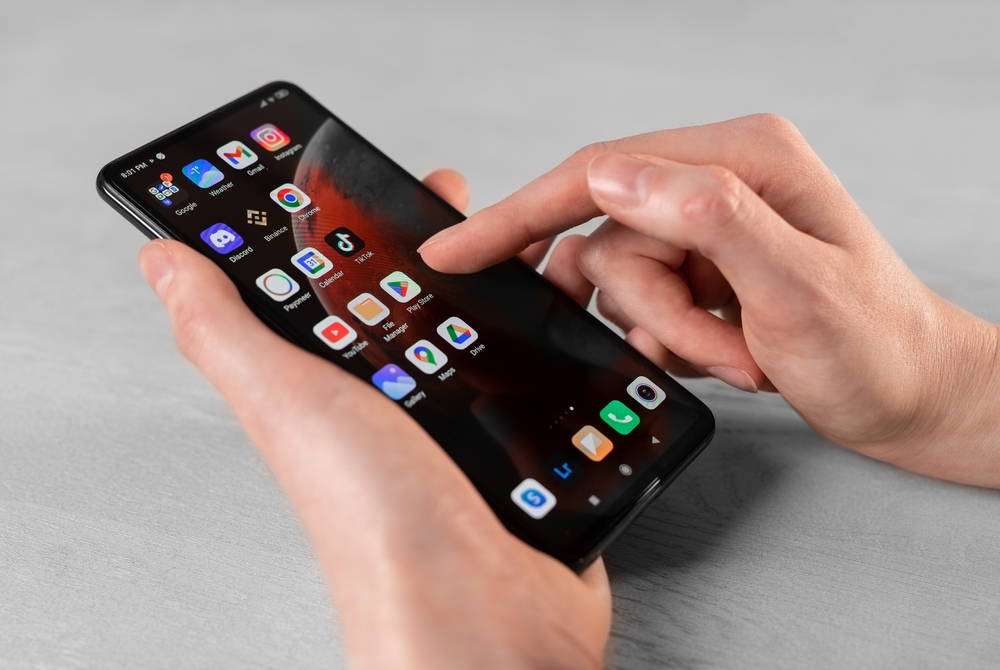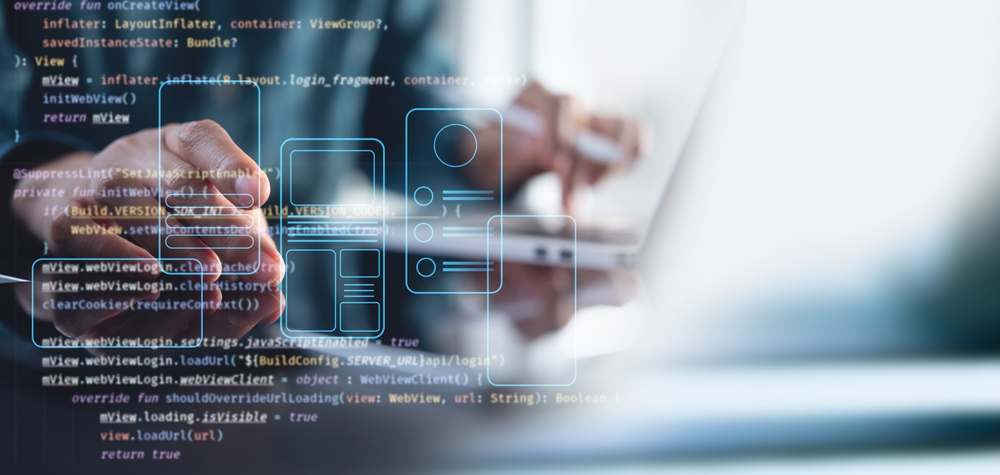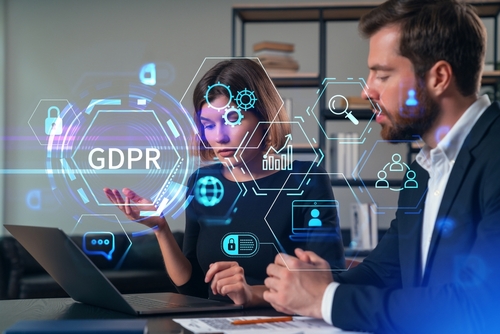Bridge the gap between a virtual world and reality with expert VR software development services. Virtual reality technology provides an opportunity to reach more customers, evolve internal operations, or create dynamic and immersive experiences.
VR app development has taken the world by storm, allowing businesses to revolutionise how they train employees and educators to transform how they deliver lessons. Moreover, gamers love how VR technology allows them to descend into the virtual world they enjoy.
Discover our comprehensive services and guide to VR app development to elevate business ideas, change how users interact with products, and monetise new revenue streams with a trusted company implementing the latest VR software developer tools.
Key Trends Shaping the VR App Development Market
Industry analysis shows that the virtual reality (VR) technology market size is projected to reach a value of £48.24 billion by 2030, with a compound annual VR market growth rate of 27.5% between 2023 and 2030. VR development for VR headsets, gloves, glasses, and bodysuits is trending.
Furthermore, the increase in using VR technology for instructional videos to train employees like field workers, mechanics, engineers, pilots, defence personnel, and other industrial sectors is fueling the VR market growth, with other key trends being enhanced accessibility and affordability driving growth.
Virtual Reality Development Services at Pulsion
VR Development Business Consulting
Partner with professional VR app development teams to access expert advice and recommendations for developing apps on various platforms, including standalone VR headsets, tethered VR headsets, gloves, and bodysuits using the latest VR software development tools and technologies.
Virtual Reality Architecture Design
Leverage our architecture design services for VR development to guarantee that all VR applications immerse users in a superior experience with simple configuration. Our VR software development teams use the latest VR technology to capture the essence of blending reality with a virtual environment.
3D Modelling for VR Solutions
Captivate users with highly realistic visuals in VR environments designed and modelled by a software development team that unleashes cutting-edge virtual reality technology with advanced animations and kinesthetic attributes to keep users coming back for more, enhancing user engagement.
VR Software Development
Our app developers create fluid virtual reality (VR) apps implementing computer vision with motion and eye-tracking technology to introduce user-friendly interactivity and a truly immersive VR experience. Develop an effortless VR app with a back-end capable of handling high loads for virtual reality software.
VR Integration Into Existing Software
Our VR app development services also allow businesses to infuse existing software with VR technology, improving user engagement and employee training with virtual reality apps. Our teams can also integrate VR software into other platforms like CMS, ERP, CRM, and LMS systems.
Quality Assurance Testing
Our VR app development services include quality assurance testing to ensure that the virtual world works seamlessly on all platforms, including VR headsets, Samsung Gear VR, and other devices. Our VR developers guarantee a streamlined VR experience on the appropriate platform.
VR App Support and Optimisation
Gain access to the VR developers capable of supporting software installation and ongoing maintenance tasks on different VR device types while providing virtual reality experience optimisation services on all popular VR platforms using built-in audio solutions and mixed reality.
Marketing and App Store Optimisation
Outsource virtual reality app development to our expert teams to optimise virtual reality apps for better marketing. App store optimisation is pivotal to the success of VR applications in vast marketplaces. App publishers must ensure they meet all of the app store owners’ requirements to rank for visibility.
Why Choose Pulsion for VR App Development?
Robust VR App Development Expertise
Rely on VR development services from a trusted company to develop VR software using the latest VR technology to run VR simulations with high-resolution graphics, 3D effects, and built-in audio solutions. Learn more about us to understand how our expert teams can deliver excellent virtual reality apps.
Advanced VR Optimisation Skills
VR implementation and optimisation often depend on the VR hardware used, and our VR app-building team has extensive knowledge about advanced integration technologies for virtual reality applications. Our app developers understand advanced VR tools like computer vision and augmented reality.
Immersive and Compelling Experience
Partner with a team that has served countless clients and completed multiple case studies over 30 years. Guarantee an immersive and compelling experience with the VR app development journey to deliver VR software for mobile apps, VR headsets, and other devices that truly transcend users.
Flexible Engagement Models
Our VR software development team is available in flexible engagement models suited to business and project needs. Clients can use our outsourcing software development services to hire dedicated software development teams or our staff augmentation services for in-house skill infusions.
Virtual Reality Use Cases in Different Industries
Automotive Industry
The VR market shows promising projections as automotive industry millions turn into billions. Industry reports reveal that the market value for VR in the automotive sector is projected to reach £29.82 billion by 2030. Virtual reality allows engineers and designers to experiment with designs before production.
Healthcare Industry
Industry reports show that the VR app market in the healthcare industry is projected to reach a value of £37.26 billion by 2032. The healthcare sector uses virtual reality software to train medical professionals to examine virtual bodies and the software is used to treat PTSD in mental health practices.
Retail and E-Commerce
Forbes shares how companies like L’Oreal, Nike, IKEA, Apple, BMW, FaceCake, and Asos use augmented and virtual reality to enhance customer experiences, simulate dress-ups with virtual mannequins, test iPhone models, explore car or product showrooms, and try on makeup.
Real Estate
The Luxury Playbook suggests that virtual reality (VR) tour listings sell up to 31% faster than traditional walkthroughs. On average, house listings using virtual reality also show an improvement of 87% in potential buyer engagement. Virtual tours and house listings are integral to the digital era.
Education and E-Learning
VR statistics for training and education show that 27.25 million VR headsets are projected to be implemented in the industry by 2028. Virtual classrooms and study groups become a reality in an augmented environment, whether students are located in different regions or across the globe.
Industrial Sectors
PWC’s study into VR training effectiveness reveals a promising path forward for all businesses looking to reduce costs for training staff by implementing virtual reality, with 40% of V-learners showing improved confidence in their tasks compared to the traditionally trained individuals.
Sports Industry
Industry analysis shows that the virtual sports market is projected to grow by 16.7% annually until 2030. The WII might’ve started the revolution, but imagine being able to train for sports anywhere or watch the game through headsets that make users feel like they’re at the live game.
Tourism and Navigation
A virtual tourism market report reveals a projected compound annual growth rate of 24.9% until 2030. Vacations are becoming more expensive, and users can travel anywhere in the world through VR development software that allows them to navigate the most memorable and historical landmarks.
Common VR Technology Options
VR developers from Pulsion only use the latest VR technology, SDKs, APIs, and toolkits to ensure the software works on the intended VR device types and provides an immersive experience. Here are some of our technologies and developer tools implemented in virtual reality app development:
- VR Technology: Our experts can integrate C#, Python, JavaScript, Java, Swift, Lua, Unity, Unreal Engine, Solidity, and Rust technologies into virtual reality software.
- VR Software Development Tools: Our teams can implement Unreal Engine with real-time rendering and a visual scripting tool or Unity with CAD tools, a powerful editor, and designer SDKs.
- Mobile Testing VR Tools: Our teams automate early user or beta testing with Test Flight for iOS mobile apps and Google Play Console for Android mobile apps.
- VR Platforms: Our VR developers have a deep understanding of Google’s VR, Meta Quest, Samsung Gear VR, HTC Vive, and Apple Vision Pro.
- Cross-Platform Development: We use Ionic, Flutter, React Native, Kotlin Multi-Platform, Native Script, Xamarin, or ARCore for multi-platform VR development.
- Other VR Tools: Our teams can also create seamless VR experiences using A-Frame, Babylon.js 3D Engine, CryEngine, Blender 3D Creation Suite, SketchUp Studio, and Maya VR Tools.
The Virtual Reality App Development Process Explained
Developing applications with VR in a streamlined process will guarantee progress and ensure that app developers meet business needs and market demands. Our app developers implement a step-by-step process for virtual reality app development:
1. Ideation and Conceptualisation
App publishers and project managers collaborate to define the project goals and scope, identifying market gaps and the company’s budget and milestones. The initial conceptualisation stage also defines the appropriate platform and whether it will better suit mobile apps, iPhone VR apps, or VR headsets.
2. Requirements Engineering
A business analyst or project manager will gather software specifications and conduct a requirements analysis for software development to define and document functional and non-functional requirements, which will help app developers choose the right technology and VR developer tools.
3. Choose the Right Development Tools
The software development requirements specification document guides app developers or project managers in choosing the best VR development tools, technology, and development kit for virtual reality apps. Our app developers rely on cutting-edge technology and specific software development kits.
4. Virtual Reality App Design
Our UX/UI design team understands spatial interaction, user ergonomics, 3D space prototyping, environments, and 3D UI design tools to design the VR app’s user interface, experience, and elements, creating intuitive navigation and interactions while considering motion sickness and added comfort.
5. VR Software Development
Our custom software development company team will start writing the VR software code and integrating secure, high-quality APIs and SDKs based on project requirements. Our VR development team will also integrate technology for graphics rendering, spatial tracking, and motion tracking.
6. Quality Assurance Testing
Our virtual reality quality assurance experts will use multiple software testing methodologies and techniques to run simulations, model spatial elements, and enhance performance. Some automated tools to detect bugs and performance issues are integrated into the VR environments.
7. VR App Deployment and Marketing
Pulsion’s VR developers deploy VR applications following the best practices outlined by app store owners to ensure the applications’ visibility while our digital strategy consultants implement effective marketing solutions like in-app purchases and other monetisation strategies when requested.
8. Ongoing Support and Maintenance
The software development life cycle is completed with ongoing maintenance and support to ensure the app maintains an immersive VR experience without any bugs or issues. Our VR implementation services and ongoing maintenance keep the immersive experience up-to-date and bug-free.
Examples of well-known VR applications
Some examples of well-known VR applications include the following:
Beat Saber is a popular VR rhythm game where players slash the adrenaline-pumping beats as they fly toward the person wearing the VR headset. The game relies on high-load game engines and motion-tracking software to determine whether the player slashes the notes on the right beat.
Fit XR brings healthcare, fitness, and workouts to VR solutions for users seeking workout experiences without all the public space issues. The fitness app allows group workouts in any user’s home using game engines, computer vision, motion-tracking software, and progress-tracking tools.
Google Earth VR allows users to immerse themselves in the real world using mixed-reality technology. The Google VR app falls into the virtual travel and education categories, inviting users to explore street views, travel anywhere, and learn about different geographical locations with VR headsets.
MSA Safety is a site inspection app that safety officers use to identify threats and reduce risks in manufacturing, construction, and logistics companies. App developers integrated mixed-reality with computer vision to deliver a virtual safety inspection app for mobile VR headsets.
Superhot VR is another VR app creating waves using game engines, augmented reality, and motion-tracking software to allow players to dodge bullets in a truly immersive first-person shooter. The game also implements time mechanics with minimalist graphics to help players focus on gameplay.
Tilt Brush is another Google VR app for gamers, but the VR app has creativity and mindfulness at heart to help anyone struggling with mental health issues. The VR app uses game engines with simple graphics that allow users to paint pictures in a virtual environment, offering therapeutic benefits.
VR Chat is another VR app using game engines combined with other interactivity software solutions on multiple VR platforms, allowing an open-world-style game where players can create characters and socialise online. Players can also explore worlds together and infuse user-generated content.
How to Monetise VR apps
Our teams provide extensive marketing support, but some monetisation strategies can ensure businesses turn VR applications into new revenue streams on different app platforms.
In-App Purchase Model
An in-app purchase model is ideal for games, allowing creators to charge for virtual items and upgrades inside the virtual environment. Games also often use the paid model, which requires users to pay for the product upfront, but both models would work as players welcome in-app purchases.
In-App Advertising Model
The in-app advertising model is a simple yet effective choice among the monetisation strategies used by many VR app owners. App developers integrate advertising mechanisms that allow businesses to collaborate with affiliates while users experience the virtual environment to earn commissions.
Premium and Freemium Models
Premium and freemium models differ slightly. Premium models use the paid model that charges users upfront for purchasing the VR app, whereas freemium models are often applied in education and e-learning sectors to provide access to courses for free but charge for the certifications.
VR App Subscriptions
The subscription model allows companies to monetise applications by charging a monthly or annual fee for using the platform. For example, the retail industry will charge users a monthly fee for using the virtual catalogs and dress-up features, which is excellent for regular online shoppers.
How to Make a VR App That Stands Out
A custom software development company will implement best practices to ensure VR applications stand out among the many available options, especially in app stores. Here are some best practices our development team follows to ensure visibility and competitiveness:
- Our custom VR development guarantees that products are unique to align with business goals, ensuring that they offer new features and a truly scalable virtual reality experience.
- Our bespoke VR applications never compromise quality and functionality. Instead, our VR developers conduct multiple beta and early user acceptance tests.
- Our custom services allow companies to intuitively design user interfaces and experiences unmatched by other applications, combining innovation and highly immersive products.
- Our bespoke VR solutions use advanced features and functionalities to set them apart from the typical cloned apps in every store, which are regulated and will be removed from the iOS store.
Virtual Reality App Development FAQs
How long does the VR app development process take?
How long the development of VR applications takes will depend on the complexity, number of VR platforms, hardware integrations, technology infusions, and more. Here are some indicators:
- A basic VR app with simple interactivity, limited content, standard graphics using standard VR environment packages, and a basic UI design on a single VR device would take 2-4 months.
- A mid-level VR app with enhanced interactivity, object manipulation, richer content, improved graphics, and dynamic user interfaces on 1 or more devices will take 4-8 months.
- An advanced VR app with motion-tracking software, highly immersive content, high-quality graphics, and a sophisticated UI/UX design with spatial features and haptic feedback on multiple platforms will take 8 months to 1.5 years.
How much does the VR development cost?
The cost of developing VR applications will depend on the hardware specifications, software integrations, VR development tools, and intended app platforms among other factors. Use our app development cost calculator to estimate the costs better.
However, here are some estimates based on VR app complexity and features:
- A basic VR app with simple interactivity, limited content, standard graphics, and a basic user interface on a single VR hardware device would cost £25,000-£40,000.
- A mid-level VR app with enhanced interactivity, richer content, improved graphics, and dynamic user interfaces and experiences on 1 or more devices will cost £40,000-£85,000.
- An advanced VR app with complex interactivity and motion-tracking software, extensive content, high-end graphics and animations, and a sophisticated UI/UX design with spatial features and built-in audio on multiple platforms will cost £85,000-£180,000+.
What VR hardware do I need for employee training?
Creating a VR experience for video tutorials or guided processes relevant to employee training would require mobile VR headsets. Our digital strategy consultants can provide expert advice and recommendations for the hardware companies’ need for employee training, a valuable experience.
Video tutorials can help engage employees better while guided instruction videos for internal processes and design concepts can help engineers and other technical experts experiment with operations before prototyping an actual model or completing certain tasks.
What types of VR applications can your developers build?
The VR development team at Pulsion is capable of delivering VR applications across multiple popular VR platforms and devices, such as mobile, desktop, headset, or other wearable hardware. Here are our types of virtual reality development services for different devices:
- VR for Smartphones
Our VR developers can redefine the virtual reality experience on mobile platforms like Android and iOS. Smartphone manufacturers like Apple, Android, and even Google are providing mobile headsets to broaden the range of VR hardware available for development.
- VR for Computers
Our VR developers can create virtual reality software for desktops and laptops. Desktop virtual reality software uses a monitor for an immersive experience, which is also a cost-effective VR development solution compared to using a mobile or wearable device software development kit.
- VR for Wearable Devices
VR development for wearable devices includes any body suits or headsets that may be used for employee training, VR applications with therapeutic benefits for mental health, or virtual product tours. Our VR development services are for computers, mobile VR headsets, and iPhone VR apps.
How do app developers use the different VR technologies and developer tools?
Incorporating VR into multiple platforms, devices, and software programs requires a collection of tools and technologies. Here are some technologies used by expert VR developers:
- Unity: The real-time development platform is well-known for making games with specific software development kits, access to CAD tools, and a powerful editor that allows developers to create 3D VR assets for PlayStation VR games.
- Unreal Engine: The 3D content creation tool has a collection of VR tools developers famously use to create animations, simulations, high-quality graphics, and integrated sound effects. Developers commonly use the platform to create prototypes quickly.
- A-Frame: The open-source web framework allows developers to design virtual reality experiences using JavaScript and HTML. The framework allows software engineers to create virtual reality applications for various headsets like Google, Apple Vision Pro, Hive, Cardboard, and Rift.
- Babylon.js 3D Engine: The gaming engine is another brilliant collection of VR tools used for game development with cross-browser functionality. The engine seamlessly renders virtual reality and 3D graphics in multiple browsers and supports software development for PlayStation VR games.
- Cry Engine: The gaming engine is a powerful collection of VR tools used to develop games for PlayStation, web, and desktop. The platform also offers a sandbox, has built-in audio and visual solutions, and welcomes real-time visualisation with the Cry Engine platform.
- Blender 3D Creation Suite: Blender has impressive VR tools ready for developers to create 3D pipeline modelling simulations, high-quality animations or graphics, and motion-tracking software for video games on multiple devices. It also has an API for Python scripting to customise apps.
- Maya VR Toolset: Maya’s development toolkit has a range of VR tools developers can use to design 3D animations, motion graphics, and dynamic user interfaces with shadowing, pipeline integration, 3D rendering, 3D shading, and 3D modelling capabilities.
